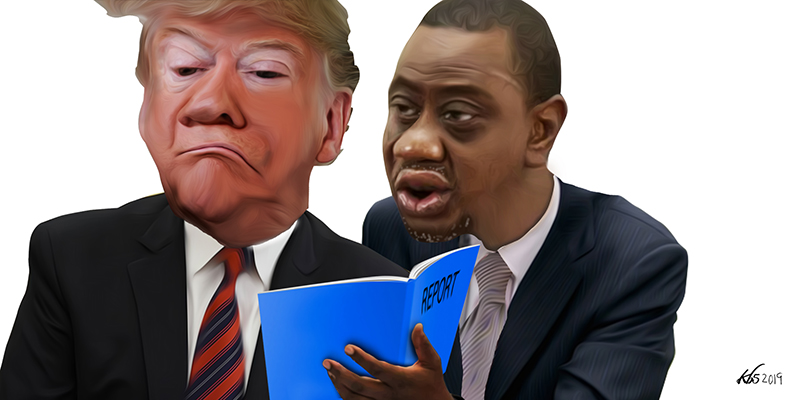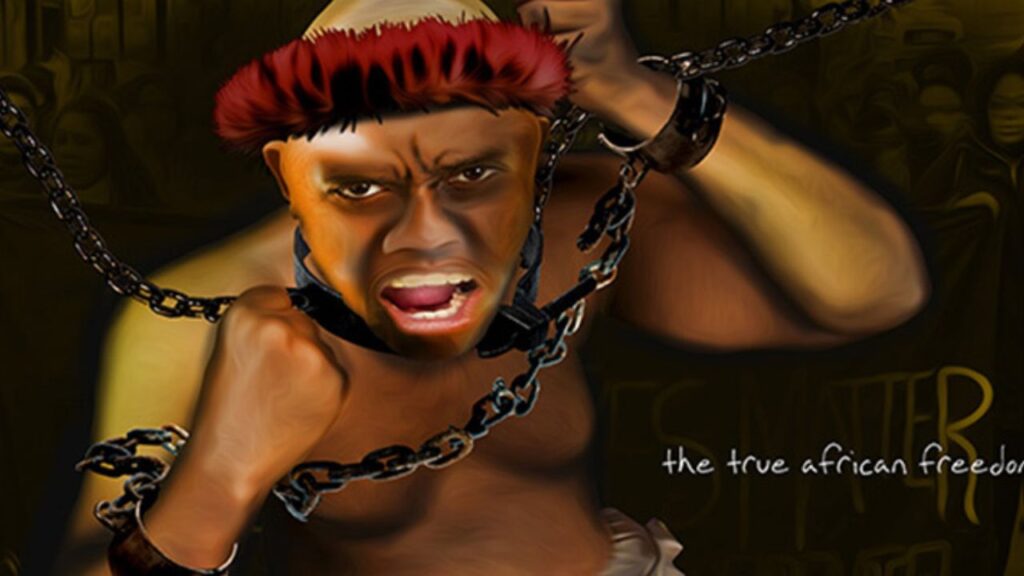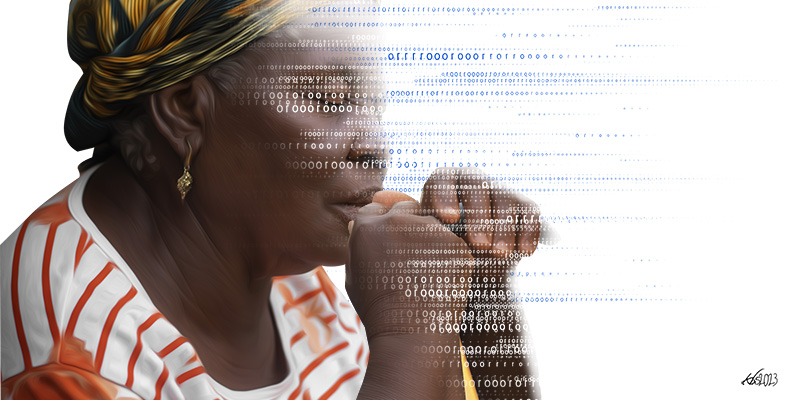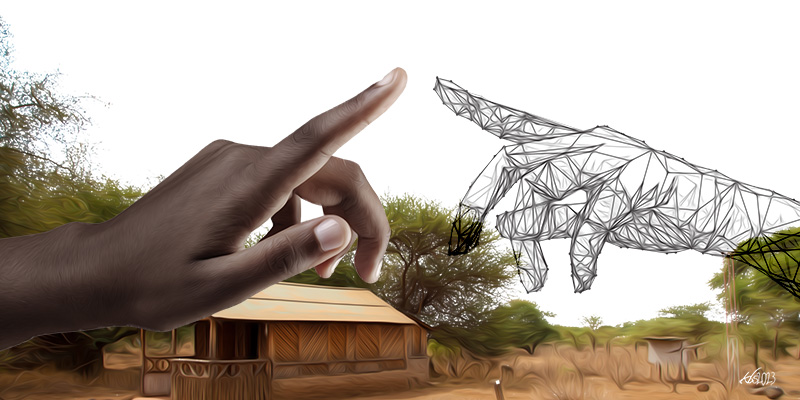Innocence, in a political context, is at best a tricky concept. Just the process and verdict of being exonerated doesn’t necessarily mean that one is not guilty. It is within those grey areas of the issue that seem the most difficult to truly identify, to act upon, to hold to account.
For adept operators of political spin, the investigations into possible criminal behaviour surrounding election time actions can be transformed into a victimhood narrative; an aspect of political leverage and the possibility of leapfrogging the “witch-hunt” against them towards political opportunity. The problem with such discussions is that the problem is identical to the opportunistic gap being filled by the public figures being scrutinized – it becomes a hot button issue, one that will fire up supporters, but that makes opponents throw up their hands in disgust and thoroughly muddy the standards of ethics for those in elected office.
The similarities between the narrative around the Mueller report released in 2019 and the International Criminal Court (ICC) trials of the so-called Ocampo Six were not about guilt or innocence, but rather about mining political capital and drawing away attention from the real heart of the issue at hand.
There are several key things to look for while engaging in such a playbook of capitalising on vindication. First is to ignore the larger issue that drove the investigation in favour of the narrative of victimhood. Second is to publicly undermine the investigation at every single turn.
The Mueller report has seemingly dropped twice now, but in drastically different contexts and through polarised lenses. Initially, the report was merely summarised by US Attorney General William Barr – a summary that looked as though it was a “clean bill of health” for the Trump Administration’s alleged involvement in collusion efforts with Russia to sway the 2016 US presidential election. Then reality set in as the full report (albeit a drastically redacted version, including entire chapter titles and full pages scrubbed in black blocks) was released. The ICC ruled that neither President Uhuru Kenyatta nor Deputy President William Ruto had engaged in acts of incitement to violence either before or during the post-election violence of 2007/2008. So what are the lessons? Could there be a “playbook” of sorts gleaned by Trump from the example of the Ocampo Six?
There are several key things to look for while engaging in such a playbook of capitalising on vindication. First is to ignore the larger issue that drove the investigation in favour of the narrative of victimhood. Second is to publicly undermine the investigation at every single turn. Third is to galvanise support around yourself while the case itself becomes more complicated and more difficult to dissect. Fourth is to capitalise from both the investigation and (if applicable) the eventual exoneration by ignoring the real issue and claiming a state of victimhood by making it into a suit of armour. Finally is to do nothing about the core of the issue that landed you in the column of the accused in the first place.
Let’s look at the points one by one in terms of watching President Donald Trump borrowing heavily from the playbook. In looking at these points, it is important to note that there is no actual proof of guilt and this article is not an accusation (both cases wound up in different forms of acquittal after all). Rather, the intention is to compare and contrast what happened during and after the cases, how the Mueller investigation was similarly undermined, the seeds of distrust sown and the verdict used for Machiavellian gains in support among the base.
Rules of the playbook
So how does one utilise the playbook? The first rule is an important one. It is crucial to largely ignore the issue and find angst in historical precedent and “victimhood” wherever possible. Doing so will help to form a basis to drive the narrative that there are larger forces at play, targeting you, the good people on your side and the very institution of democracy itself. This step was taken by both Uhuru and Ruto on several occasions, and was most notably taken by Uhuru Kenyatta, saying of the ICC in October of 2013 during a Summit of the African Union in Addis Ababa, Ethiopia: “The ICC has been reduced into a painfully farcical pantomime, a travesty that adds insult to the injury of victims. It stopped being the home of justice the day it became the toy of declining imperial powers.”
The Trump administration has used the first rule of the playbook with great aplomb and reckless abandon by blaming every possible target in sight, primarily the liberal elite (and their representative media) who have been allegedly victimising, ignoring and ridiculing the “real America” for decades.
During the same address, Uhuru Kenyatta publicly questioned the purpose of the ICC within an African context as it only “targeted African figures”. This was playing the narrative towards a form of neo-colonial interference: old powers seeking to continue to lay a claim on a nation that was never theirs in the first place. Within the Kenyan media, this messaging was a daily discussion, with a notable lack of substantive discussion surrounding the situation of thousands of internally displaced people (IDPs) within the Great Rift Valley, people who were displaced by the very violence that Uhuru and Ruto were accused of inciting.
The Trump administration has used the first rule of the playbook with great aplomb and reckless abandon by blaming every possible target in sight, primarily the liberal elite (and their representative media) who have been allegedly victimising, ignoring and ridiculing the “real America” for decades. This was swirled into a concoction with other targets, notably defeated candidate Hillary Clinton, vague allegations that could be construed as anti-Semitism, race-baiting and stating outright that the world powers were both in favour of and against his election (sometimes when referring to the same leader). This was coupled with continued claims at victimhood – that both Trump and his administration were being unduly targeted because of their political identity as conservatives. This was a key aspect of Trump’s strategy – to throw up the smoke screen to confuse the status of his innocence, rather than support the investigation into whether the US elections were interfered with by a foreign government in order to benefit the side of their choosing.
In 2016, Trump laid repeated claims of election rigging before and after his victory in the electoral college, stating that he would “have to see” if he would accept the results, dependent on whether he won and asking Russia if they were listening during continued intelligence reports of interference from Moscow. In 2017, he sought to implement a ban on Muslim immigrants from several nations and began his attacks against those who would investigate him. In 2018, he continued to repeatedly make claims of voter fraud and election rigging around the US mid-term elections. In 2019, he focused upon the Mueller report, first as a potential “victim” of falsified investigation, and now more alarmingly, as the “vindicated” defendant, a martyr to his own cause.
Whether Trump’s repeated claims and targeting of opponents could be classified as political incitement to violence, as some of the Ocampo Six allegedly engaged in, is an intriguing aside. Has the White House been actively getting away with priming supporters to violence in plain sight, on stage, on Twitter and during extended call-in interviews to Trump’s favourite anchors on Fox News? (At times, especially during Trump’s campaign rallies in 2016, these threats included the direct offer of legal support for supporters who attacked protesters.)
So how can the next rule of undermining the investigation be used? During nearly the entirety of the Luis Moreno Ocampo-led ICC investigation into the post-election violence, there were continuous efforts to throw water onto the investigation at the local level by referring to it as a sort of imperialist charade and perhaps more importantly, to question the very objectivity, motives and jurisdiction of the court, the Chief Prosecutor and the trial itself. Such a narrative was rapidly formed in the weeks and months following the Ocampo Six (for a refresher, the six were: the then-Finance Minister, Uhuru Kenyatta, the then-suspended Education Minister, William Ruto, the Minister of Industrialisation, Henry Kosgey, the secretary to the cabinet, Francis Kirimi Muthaura, the former police chief, Mohammed Hussein Ali, and radio journalist Joshua Arap Sang) originally being named in December of 2010.
Let us quickly examine Trump and his use of a similar playbook. With a deft touch – and whilst uttering the words “this is the end of my Presidency, I’m fucked” – the Trump administration began a systematic and continuous onslaught into the reputation of special counsel Robert Mueller, the investigators, the United States Justice Department, the “mainstream” media and all other comers Trump deemed to be against him. In some of these cases, such as with the media and the Justice Department, the attacks didn’t start, but were dramatically increased, a narrative given form, a gripe given a newfound scapegoat. In looking for a quantitative figure of how many times Trump directly attacked (across print, broadcast or social media channels) or made disparaging comments about the Mueller investigation, as of late February (several weeks before the report was officially dropped) the number stood at more than 1,200. This technique of shotgun-style attacks against the investigator could have been pulled nearly note for note from Uhuru between 2011 and 2014.
In both the cases of the ICC trials and the Mueller investigation, it was helpful to have a friendly, borderline propagandist wing of the media to further undermine the credibility of the cases. In Kenya, radio hosts constantly questioned Ocampo and the ICC, while newspapers “accidentally” leaked the names of witnesses for the prosecution.
In his case, Kenyatta was able to round quickly upon Ocampo, routinely alluding to a state of colonial incarceration of Kenya’s politics from the imperialist forces abroad, Ocampo being the true agent of these forces. In both cases, the investigations themselves were actively undermined: in the case of the Ocampo Six, witnesses were intimidated, claims of bribery were made, witnesses changed answers or were never able to give them at all. During the Mueller investigation, interference was also run heavily. Threats of firings were made, documents were not turned over, witnesses changed stories, the White House attempted to directly control the investigation itself (as was revealed when the report itself was released on April 18th, 2019) and possible instances of obstruction of justice occurred (which were also expounded upon by the release of the report).
In both the cases of the ICC trials and the Mueller investigation, it was helpful to have a friendly, borderline propagandist wing of the media to further undermine the credibility of the cases. In Kenya, radio hosts constantly questioned Ocampo and the ICC, while newspapers “accidentally” leaked the names of witnesses for the prosecution. In the US, Sean Hannity, Laura Ingram, Tucker Carlson and other Fox News figureheads made often unsubstantiated claims against the Mueller investigation team in front of an audience of millions while radio hosts like Rush Limbaugh pursued a narrative of political biases against the Trump administration.
This misinformation leads to the next step of the playbook – swirling the waters to precipitate a steady erosion of public confidence amongst supporters regarding the impartiality of the legal proceedings. The very essence of the case becomes murky, truth itself is questioned and it is hard to see through the constant wall of noise. Through this lens, victimhood is skewed, the accused become blameless and the mob is perpetually at the gate, ready to come get you or anyone who thinks like you. This was true in Kenya when the ICC proceedings dominated headlines, nightly news, radio conversation and public discourse for a period of years. The flow of information became so constant, the news so regular, that the actual proceedings of the case oftentimes seemed lost in the shuffle. This is the next step, to capitalize on the narrative and to bring your allies (and voters) into the fold and rally them to your cause. This was what both Uhuru and Ruto did in the form of holding large political rallies during the ICC investigation and trials for both themselves and other members of the Ocampo Six, thus turning the court case against them into a grassroots political movement.
To say that Trump has borrowed such efforts to campaign while in power and under investigation is an understatement. He has held dozens of rallies, primarily in states of his base, since the announcement of the Mueller investigation in May of 2017. A common thread through all of the rallies during that period, before Mueller “exonerated” him in March of 2019 (according to US Attorney General William Barr, against whom allegations of lying to Congress regarding the findings of the investigation have been made) was to galvanise his supporters around him by claiming that it was an effort to head off his “sure fire” re-election in the upcoming 2020 election, to undermine his political agenda and to continue to victimise the very people who made up the Trump voter base. He even launched his 2020 campaign slogan “Keep America Great” during one of these rallies.
In both cases, there were clear elements of nationalism employed during the held events; in Trump’s case, during an October 22nd, 2018 rally in Houston, Texas, he even stated publicly that he identified as a nationalist; a statement which, in the American context, can hold ugly parallels with white supremacist causes. His rallies only picked up steam and in recent weeks, Trump has made the pivot from accused man-of-the-people to vindicated martyr.
This leads to the next step in the playbook – to capitalise on the vindication, to continually state that you are, in fact, vindicated, that things were as conspiratorial as you had initially stated. And to act more emboldened as a result. This helps to draw parallels in unrelated narratives, which can take on the implied “Remember that time they thought I was wrong? I was right and it was wrong for them to think I was wrong”. This was the case in Kenya, best exemplified by Deputy President Ruto, who said on April 8th, 2016 (a mere three days after being acquitted by the ICC): “The allegations that were made against me were criminal acts of evil minds that schemed, connived, colluded and fabricated a case against us.” This is a key part of the playbook – to solidify the narrative that there was something foul afoot throughout the legal framework against the accused.
Trump, for his part, is already attempting to front-run on the exoneration. He’s held victorious rallies, randomly gloated during unrelated press announcements and unleashed storms of capitalised “victory” tweets in the weeks since then. The narrative around the embattled Trump administration has been formed – that there were, in fact, elements that sought to undermine or even overthrow him. For the White House; the greatest threat has been transformed into a suit of armour, a constant call back to question the motives of the political opposition, a presidential challenger and several investigations into the Trump administration and 2016 campaign that have directly stemmed from the efforts of Mueller’s team of investigators. The actual report, as it were, is startling in the breadth of questionable activity by the Trump campaign in 2016 – despite repeatedly falling just shy of both giving a concrete indictment or an outright vindication of the Trump campaign’s role in the proven Russian attempts to influence the US Presidential election of 2016 in favor of the Republican candidate.
Capitalising on ‘exoneration’
So, what can the effect be on supporters of “vindicated” politicians? In both the cases of the Ocampo Six and the Trump administration, supporters seemed to fall into two distinct camps, both of which reverberated by mouth pieces on talk shows, in the papers, or sitting across from you in the bar. The first camp denies any allegations, no matter how significant, and any charges are dismissed (sometimes with incredible contortions of logic). Any piece of evidence is quickly dismissed rapidly as being a tool/propaganda of the imperialists/the partisan opposition/the elites who can never understand you like I do (despite my billions).
The real tragedy, of course, in capitalising on exoneration is the heart of the issue, or the real victims, being lost in the shuffle or pushed aside. In Kenya, this prioritisation shift was turned away from the tens of thousands of internally displaced persons who remained scattered about the Rift Valley for years to come, while those accused of putting them there did little or nothing to fix the internal problem at hand.
The second camp is perhaps the more insidious and dangerous – those supporters who accept that there may have been a wrong committed, but who treat the entire matter with a “so, what?” On a daily basis in the United States, even in the wake of the long-venerated Mueller report, pundits and administration figures from within the Trump Administration came out (typically on Fox News) and stated in front of millions of viewers that while collusion may have happened, so what if it did? This, for a keen football eye, is the essence of shifting goal posts. In both cases there is one clear similarity – that the accused have used exoneration as their own personal firebrand, carrying it aloft as a political touch stone approximately a year and a half before a presidential election. Trump is sure to use the lack of indictment as a badge of innocence, as proof to his base that he deserves to get the nod back into the White House. Indeed, there is a slightly more perverse and insidious aspect to such methodology – the use of a critical investigation as a shield of political impunity, a veil of martyrdom to protect one from potential future mistakes.
The real tragedy, of course, in capitalising on exoneration is the heart of the issue, or the real victims, being lost in the shuffle or pushed aside. In Kenya, this prioritisation shift was turned away from the tens of thousands of internally displaced persons who remained scattered about the Rift Valley for years to come, while those accused of putting them there did little or nothing to fix the internal problem at hand. Responsible parties for the more than one thousand deaths in the country were seldom found in the following years.
It is a similar theme in the US (albeit without the horrifying human cost). The problem still remains. There is now open disregard for election law and there are continued attempts at international interference within the elections, which the Trump Administration (and several figureheads from the Republican Party) seem to openly embrace, consequences to the country be damned, as long as their exoneration is able to hold firm and true in the eyes of their political base.
The seriousness of the Trump administration’s direct negative impact on the world cannot and should not be sugar-coated: the world is now at greater risk of global warming being irreversible after the US pulled out of the Paris Climate Agreement in June of 2017 and the risk of the Middle East being sucked into a large-scale conflict has increased after a reversal of the Iran Nuclear Agreement and the sudden calling for Jerusalem being named as the capital of Israel. The risk of direct nuclear conflict has been increased, with Donald Trump publicly calling North Korean dictator Kim Jong-un “short and fat” despite increased tensions.
Within Africa (all-in-all a “shithole”, according to Trump), the cost of ARVs to combat HIV/AIDs has increased and become more difficult to access. It all has become lost in a three-card-Monty of guilt, exoneration and possible criminal action. In both cases, these aspects remain the most vexing – that the “little man’s” actual suffering must make way for the “big man’s” grey-area vindication. That’s the fifth and final play of capitalising on exoneration – to leave it entirely behind, not to investigate, fix or heal. It is the ugly truth – that the cause was always about the politician, not about who may have suffered directly from whomever actually perpetrated the allegations that were laid at his feet.








